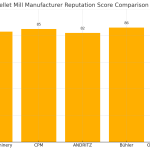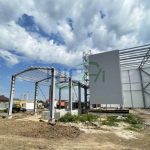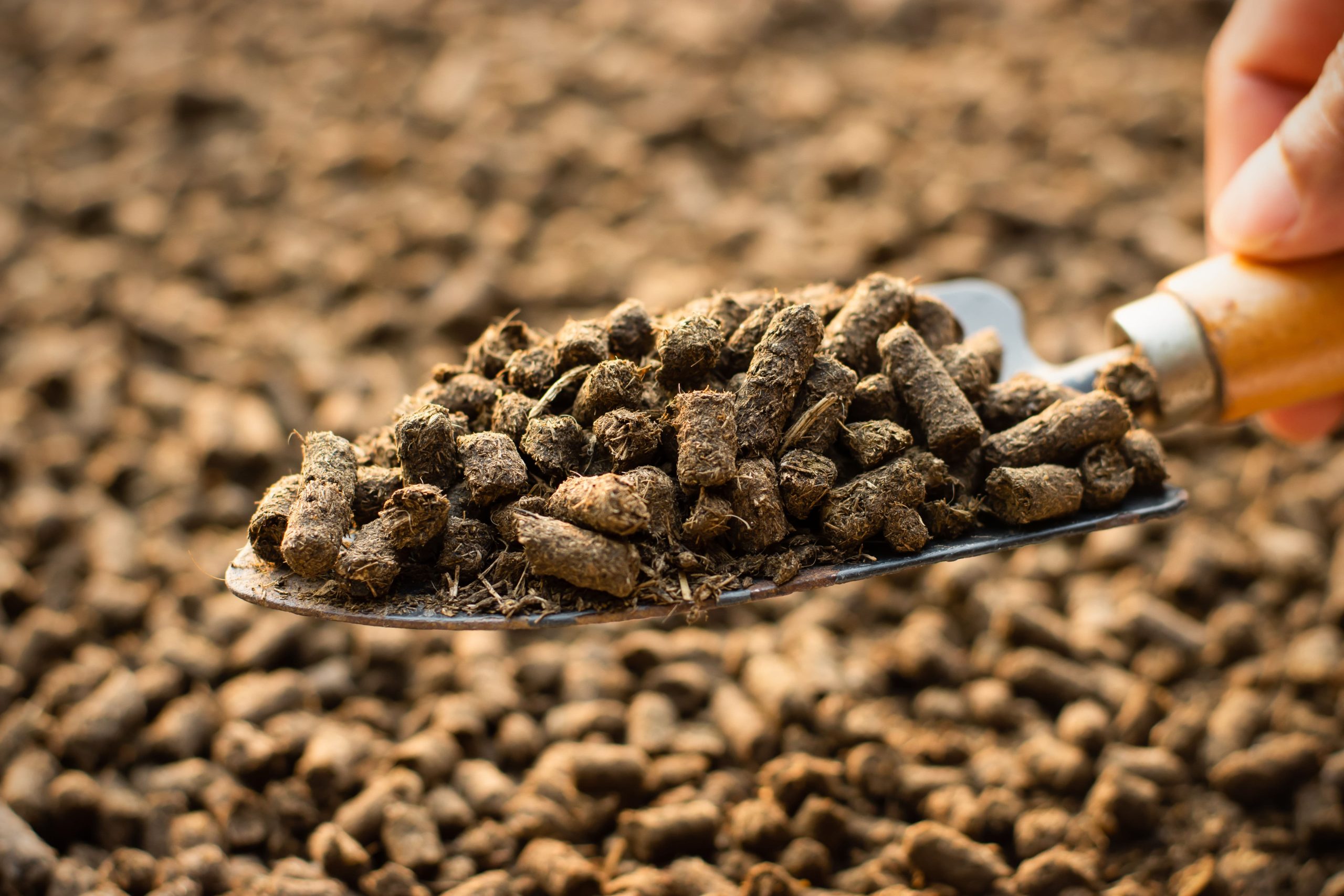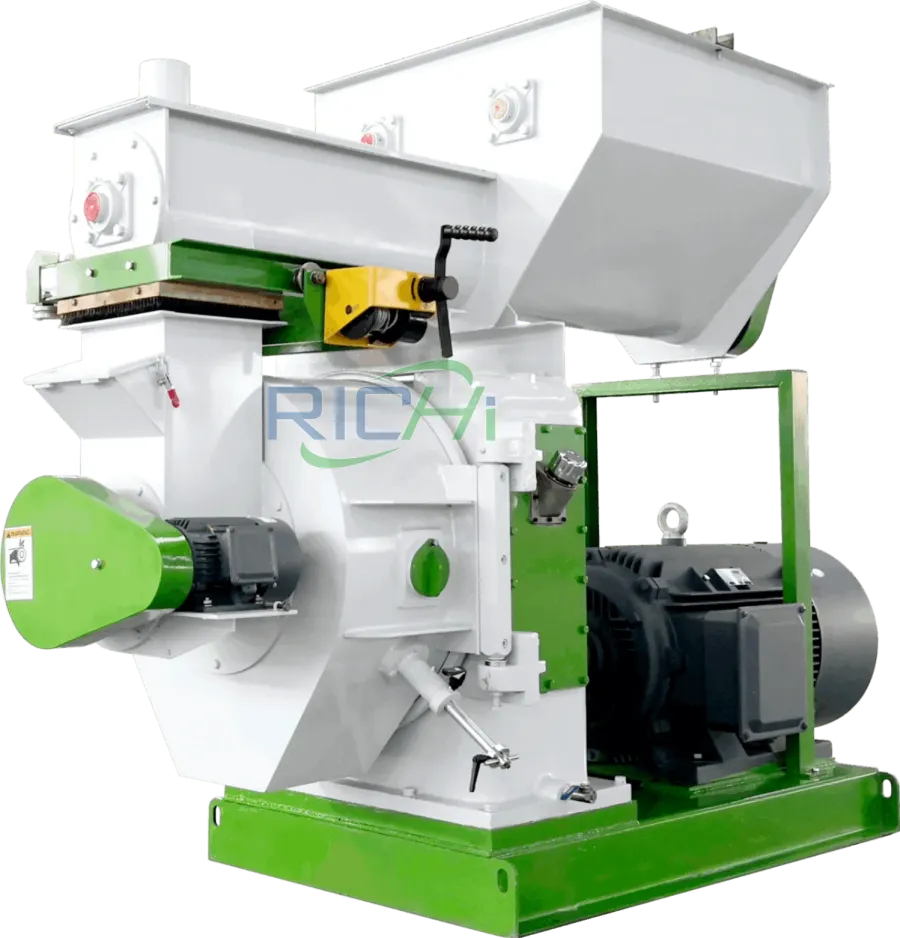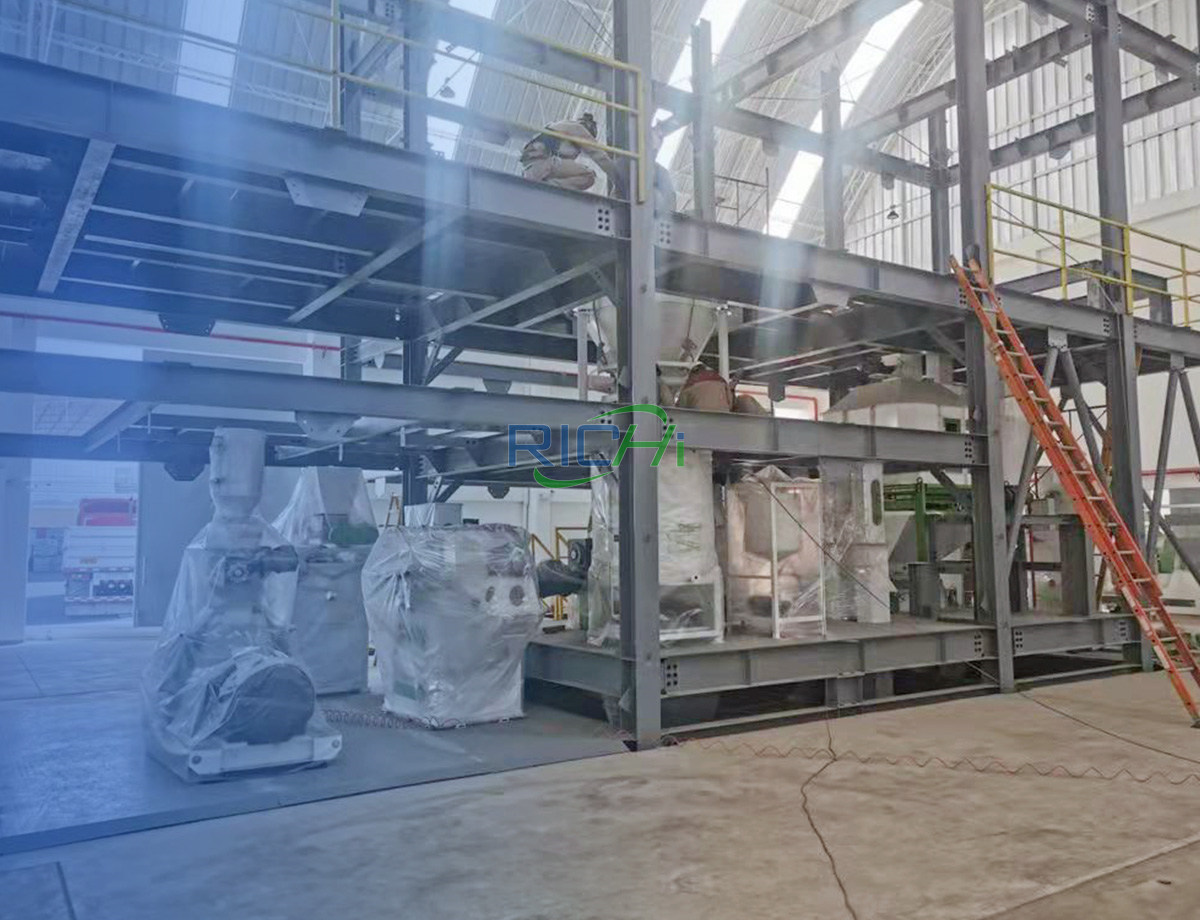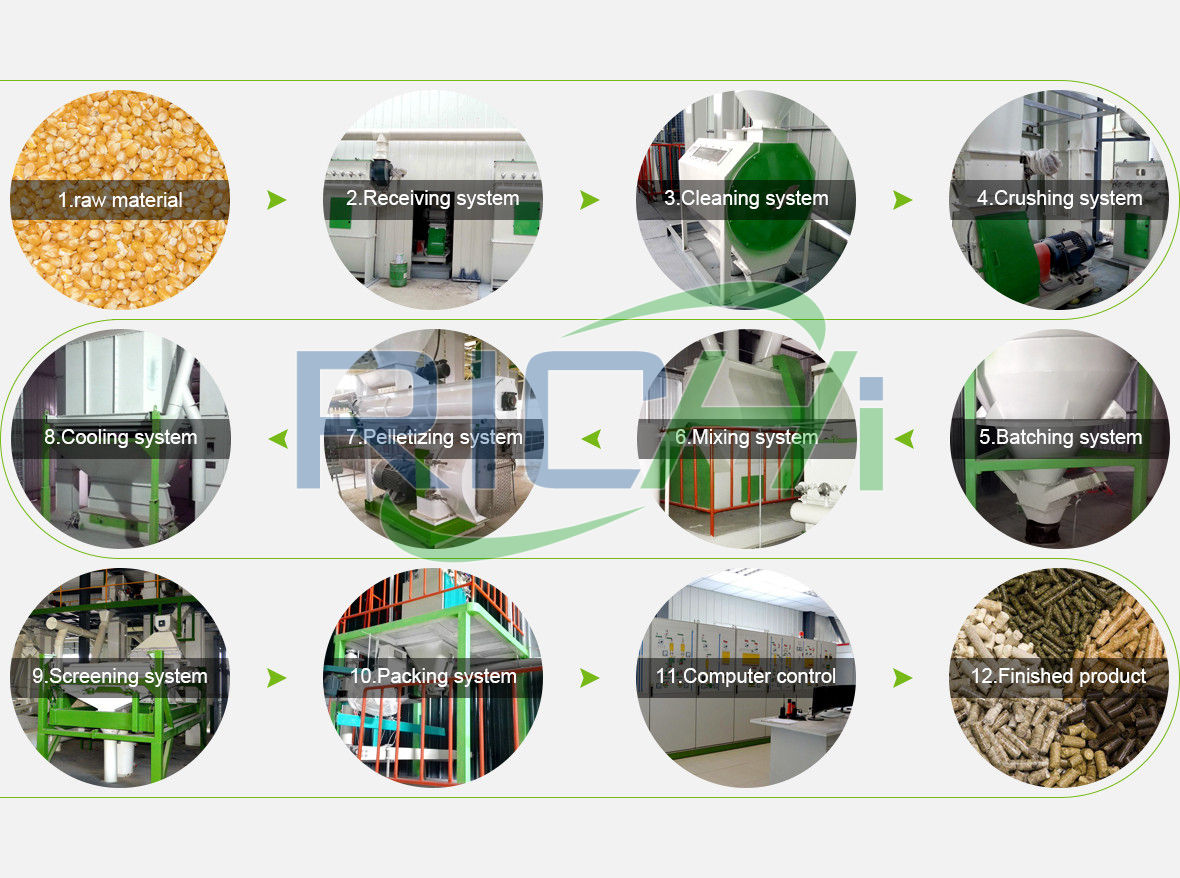Cow dung pellet making machines have gained popularity in recent years as a method for transforming animal waste into valuable organic fertilizer and biofuel. The efficiency of these machines significantly affects the overall production costs and profitability of cow dung pellet operations. This article examines how the production efficiency of cow dung pellet making machines influences various aspects of the production process and ultimately impacts the total cost of production.
Raw Material Processing
The efficiency of a cow dung pellet making machine directly influences the rate of raw material processing:
- Higher Efficiency: More efficient machines can process larger quantities of cow dung in less time, which reduces labor costs and increases output.
- Lower Efficiency: Less efficient machines may require longer processing times, leading to increased labor costs and potentially higher energy consumption.
Efficient raw material processing ensures a consistent supply of material for pelletization, minimizing bottlenecks in the production line.
Energy Consumption
Energy use is a critical factor in production costs, with machine efficiency playing a significant role:
- Efficient Machines: Well-designed, efficient machines typically consume less energy per ton of pellets produced, resulting in lower electricity costs.
- Inefficient Machines: Machines with poor efficiency may require more energy to produce the same quantity of pellets, raising operational costs.
Manufacturers like RICHI Machinery focus on developing energy-efficient pellet machines that can significantly reduce energy consumption and associated costs.
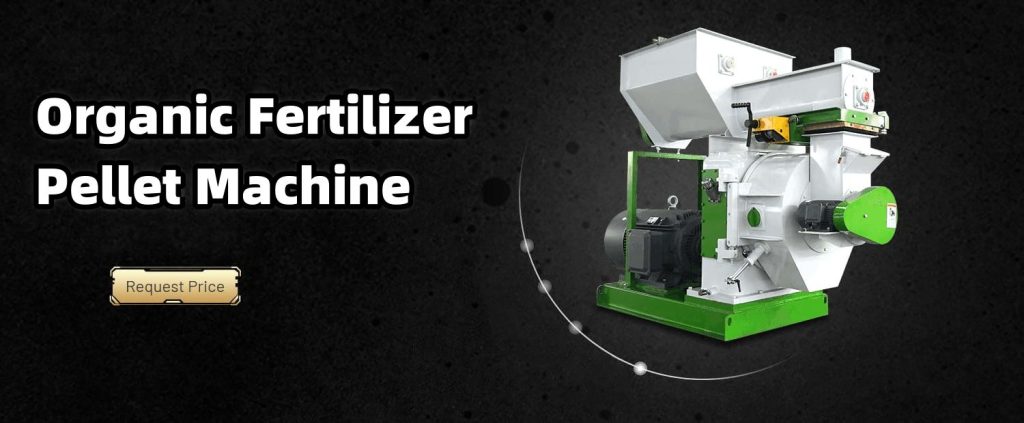
Production Output
The output of cow dung pellet making machines directly affects the unit cost of pellets:
- High Output: Efficient machines with higher production capacities can generate more pellets per hour, distributing fixed costs over a larger volume of product.
- Low Output: Machines with lower production rates may lead to higher unit costs, as fixed expenses are allocated to a smaller quantity of pellets.
Increased production efficiency allows for better resource utilization and can lead to economies of scale.
Labor Requirements
The efficiency of pellet-making machines impacts labor needs and associated costs:
- Automated Systems: Highly efficient, automated machines may require fewer operators, leading to reduced labor costs.
- Manual Operations: Less efficient machines might necessitate more manual intervention, resulting in higher labor requirements and costs.
Machines from manufacturers like RICHI often incorporate advanced automation features, minimizing the need for constant manual oversight.
Maintenance and Downtime
Machine efficiency is closely related to maintenance requirements and potential downtime:
- Efficient Machines: Well-designed, efficient machines generally require less frequent maintenance and experience fewer breakdowns, reducing downtime and associated costs.
- Inefficient Machines: Machines with poor efficiency may be more prone to wear and tear, resulting in increased maintenance costs and production interruptions.
Regular maintenance is crucial for maintaining efficiency and minimizing unexpected downtime. (Related post: chicken manure pellets machine)
Product Quality
The efficiency of cow dung pellet making machines can influence the quality of the final product:
- Consistent Quality: Efficient machines often produce more uniform pellets with consistent density and moisture content, which can command higher market prices.
- Variable Quality: Less efficient machines may produce pellets of inconsistent quality, leading to lower selling prices or increased costs for quality control measures.
High-quality pellets can justify premium pricing, positively impacting overall profitability.
Scalability
Efficient pellet-making machines offer better scalability options:
- Easy Scaling: Highly efficient machines can often be scaled up more easily to meet growing demand, allowing for cost-effective expansion of production.
- Limited Scaling: Less efficient machines may pose challenges when attempting to increase production, potentially requiring significant additional investment.
The ability to scale production efficiently can lead to long-term cost savings and improved market competitiveness.
Raw Material Flexibility
Efficient cow dung pellet making machines often provide greater flexibility in processing different types of raw materials:
- Versatility: High-efficiency machines can usually handle variations in raw material composition without significant productivity loss.
- Limited Adaptability: Less efficient machines may struggle with variations in raw materials, potentially leading to increased processing costs or reduced output.
Flexibility in raw material processing can yield cost savings by allowing the use of more readily available or less expensive input materials.
Environmental Compliance
The efficiency of pellet-making machines can influence environmental compliance costs:
- Reduced Emissions: More efficient machines typically produce fewer emissions and waste, potentially lowering costs associated with environmental compliance.
- Higher Emissions: Less efficient machines may generate more waste or emissions, leading to increased costs for pollution control measures.
Efficient machines that meet or exceed environmental standards can help avoid costly fines or retrofitting expenses.
Return on Investment (ROI)
The overall efficiency of cow dung pellet making machines significantly impacts the return on investment:
- Faster ROI: Highly efficient machines, while potentially more expensive initially, often provide a quicker return on investment due to lower operating costs and higher productivity.
- Slower ROI: Less efficient machines may have a lower upfront cost but can lead to a slower ROI due to higher ongoing operational expenses.
Considering long-term efficiency and productivity is crucial for maximizing ROI.
Conclusion
The production efficiency of cow dung pellet making machines plays a vital role in determining overall production costs. From raw material processing and energy consumption to labor requirements and product quality, efficiency influences every aspect of the production process. Investing in high-efficiency machines, such as those offered by RICHI Machinery, can lead to significant cost savings over time, improved product quality, and enhanced environmental performance.
As the demand for organic fertilizers and biofuels continues to grow, the importance of efficient cow dung pellet production cannot be overstated. Manufacturers and operators should carefully assess the efficiency metrics of pellet-making machines when making purchasing decisions, as the right choice can yield substantial long-term benefits in terms of reduced production costs and increased profitability.
By prioritizing efficiency in cow dung pellet production, operators can not only lower their production costs but also contribute to more sustainable agricultural practices and renewable energy production. As technology continues to advance, we can anticipate even more efficient and cost-effective solutions for cow dung pellet production in the future.



